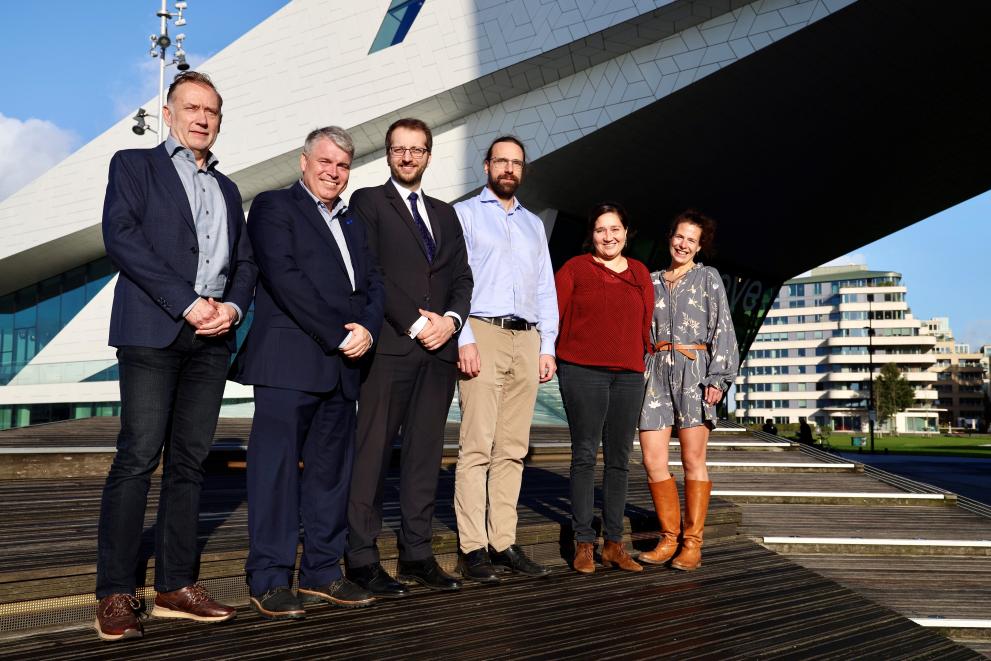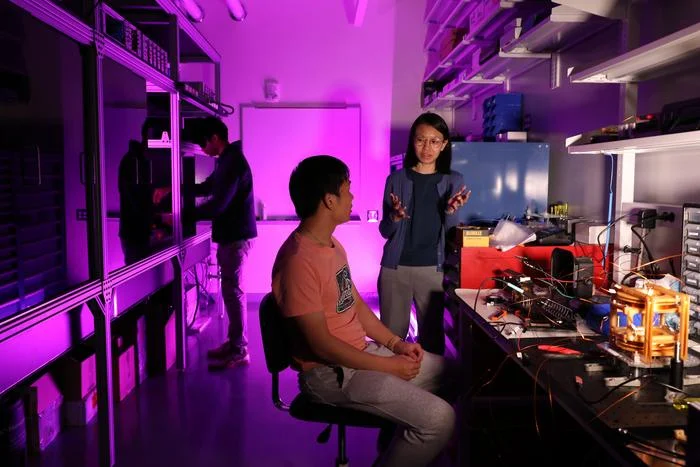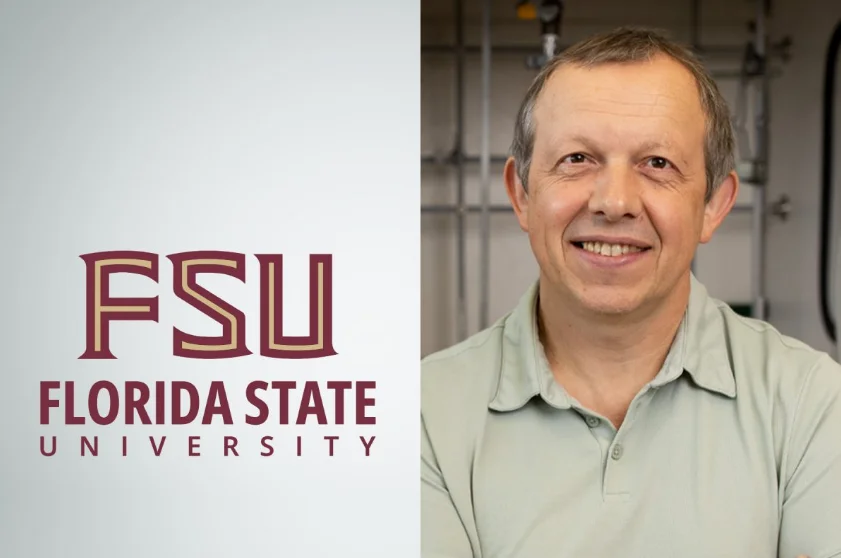Insider Brief:
- The EuroHPC Joint Undertaking announced that SURF will host and operate a new European quantum computer in collaboration with QuantumDelta NL, located at the Amsterdam Science Park and integrated into the Dutch national supercomputer, Snellius.
- The quantum system will use semiconductor spin qubits, starting with a minimum of 16 physical qubits as it provides high scalability due to the smaller size of the qubits and the ability to use Europe’s established semiconductor industry for future mass production of quantum chips.
- The new EuroHPC quantum computer is intended to support research and innovation across various sectors, providing European users with access to computational capabilities for complex mathematical tasks, optimization problems, climate modeling, and improved cybersecurity.
- The EuroSSQ-HPC consortium, comprising seven partners from three countries, will manage the quantum computer’s operation and user support. The project is co-funded by the EuroHPC JU and participating states, with an investment of up to €10 million (approximately $10.8 million) from the European Union to support the development of diverse quantum computing platforms across Europe.
PRESS RELEASE — Today, at the EuroHPC User Day 2024 in Amsterdam, the EuroHPC Joint Undertaking announced the selection of SURF to host and operate a new European quantum computer, in coordination with QuantumDelta NL. The system will be located at the Amsterdam Science Park and integrated into the Dutch national supercomputer, Snellius.
The quantum system will be based on semiconductor spin qubits and, in its initial phase, will offer a minimum of 16 physical qubits. Semiconductor spin qubit technology holds great potential for large-scale quantum information processing, primarily due to the qubits’ smaller physical size, which allows for high scalability. A key advantage of this approach is Europe’s well-established semiconductor industry, which is positioned to play a pivotal role in the mass production of quantum chips. Leveraging Europe’s existing infrastructure and expertise, there is strong potential for scaling up manufacturing capabilities to meet future demand as the technology matures.

Semiconductor spin-qubit technology is not yet under deployment in any other EuroHPC quantum computers. This technology will complement the EuroHPC quantum computing ecosystem currently being developed, and aligns with EuroHPC JU’s goal of providing European users with access to a diverse range of quantum computing platforms.
Supercomputers with quantum computing acceleration can solve specific complex tasks in seconds, tasks that traditional supercomputers struggle to compute. They are particularly powerful for problems that involve complex mathematical calculations or optimisation challenges such as improving traffic flows in smart cities or simulating molecular structures, critical for the development of new drugs and materials. Other potential applications include accelerating climate modelling to predict weather patterns more accurately, and enhancing cryptographic algorithms for better cybersecurity.
This new EuroHPC quantum computer will support research and innovation and will be available to a wide range of European end-users, spanning from the scientific community to industry and the public sector. It will drive innovation across Europe while positing our continent as a frontrunner on this cutting-edge technology.
More details
SURF has been selected as a result of a call for expression of interest for the hosting and operation of European quantum computers integrated in HPC supercomputer, launched in December 2023.
The EuroSSQ-HPC consortium will jointly operate the new EuroHPC quantum computer, handling user support and all integration activities. The consortium represents a true collaborative effort, bringing together seven partners from three countries: the University of Antwerpen (BE), GENCI (France), Netherlands eScience Center (NL), Leiden University (NL), Delft University of Technology (NL), National Institute of Subatomic Physics (NL) and SURF (NL).
The quantum computers will be co-funded by the EuroHPC JU budget stemming from the Digital Europe Programme (DEP) and by contributions from the relevant EuroHPC JU participating states. The JU will co-fund up to 50% of the total cost of the quantum computers with a total European Union’s investment of up to €10 million (approximately $10.8 million). The exact funding arrangement will be reflected in the hosting agreement that will be signed soon.
Background
In 2023, the EuroHPC JU signed hosting agreements with six sites across Europe to host and operate EuroHPC quantum computers: in Czechia, Germany, Spain, France, Italy, and Poland.
In 2024, the EuroHPC JU has announced the signatures of the procurement contracts for:
- EuroQCS-Poland quantum computer,
- LUMI-Q consortium’s quantum computer,
- Lucy located in France and
- Euro-Q-Exa located in Germany.
The selection of these six hosting entities aimed to offer the widest possible variety of European quantum computing platforms and hybrid classical-quantum architectures. This approach positions Europe at the forefront of this emerging field while providing European users with access to diverse and complementary quantum technologies. The selection of SURF, following LuxProvide’s selection yesterday , aligns perfectly with this ambition.
These quantum computers come on top of two analogue quantum simulators procured under the EuroHPC JU project HPCQS and currently being installed in France and Germany. The two quantum simulators are based on neutral atoms, supplied by the French company PASQAL. HPCQS aims to develop and coordinate a cloud-based European federated infrastructure, tightly integrating two quantum computers, each controlling 100-plus qubits in the Tier-0 HPC systems Joliot-Curie of GENCI and the JUWELS modular supercomputer at the Julich Supercomputing Centre (JSC).
About EuroHPC JU
The EuroHPC JU is a legal and funding entity, created in 2018 and reviewed in 2021 by Council Regulation (EU) 2021/1173. This was recently amended in 2024 by means of Council Regulation (EU) 2024/1732, with the mission to:
- develop, deploy, extend and maintain in the EU a world-leading federated, secure and hyper-connected supercomputing, quantum computing, service and data infrastructure ecosystem;
- support the development and uptake of demand-oriented and user-driven innovative and competitive supercomputing system based on a supply chain that will ensure components, technologies and knowledge limiting the risk of disruptions and the development of a wide range of applications optimised for these systems;
- widen the use of that supercomputing infrastructure to a large number of public and private users and support the development of key HPC skills for European science and industry;
- and develop and operate AI Factories located around EuroHPC supercomputing facilities to support the growth of a highly competitive and innovative AI ecosystem in Europe.
In order to equip Europe with a world-leading supercomputing infrastructure, the EuroHPC JU has already procured nine supercomputers located across Europe. Three of these EuroHPC supercomputers are now ranked among the world’s top 10 most powerful supercomputers: LUMI in Finland, Leonardo in Italy and MareNostrum 5 in Spain.
About SURF
SURF B.V. (SURF), the coordinator and hosting entity, is the not-for-profit single working company of the SURF cooperative association of Dutch educational and research institutions in which the members combine their strengths. Within SURF, we work together to acquire or develop the best possible digital services, and to encourage knowledge sharing through continuous innovation. SURF has hosted the Dutch national supercomputer since 1984, and provides the National Competence Centre (NCC) for the Netherlands in the EUROCC framework of national competence centres of EuroHPC. SURF is also the Dutch NREN, starting from 1990. SURF provides advanced computing, data, cloud, AI, AAI, grid, and networking services to researchers in the Netherlands. SURF has a long track record in international collaboration, and is currently member of PRACE, EGI, EUDAT and GEANT.
SURF is a partner in the EuroHPC pre-exascale LUMI consortium, in the EuroHPC exascale Jules Verne consortium, and in the LUMI-Q consortium.















